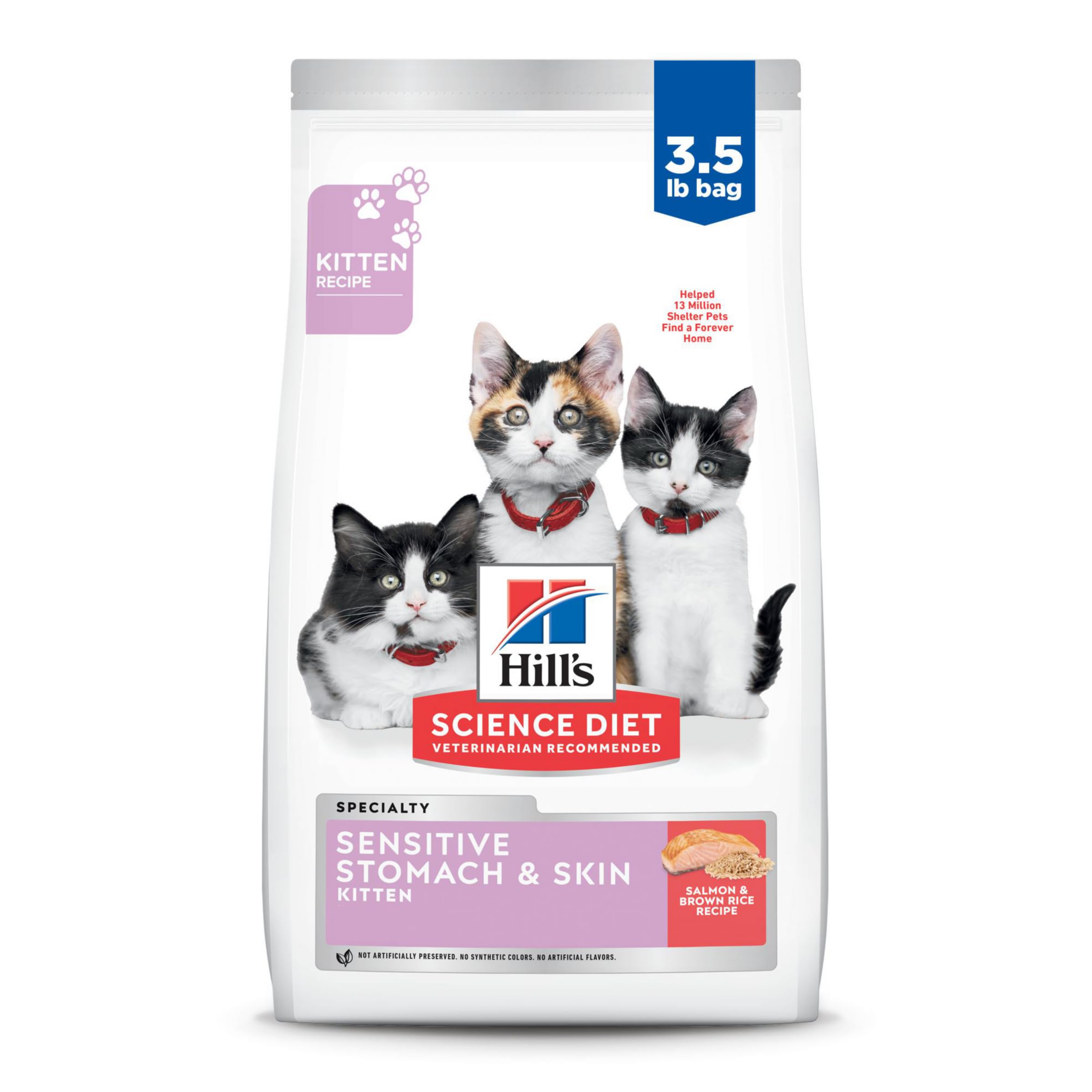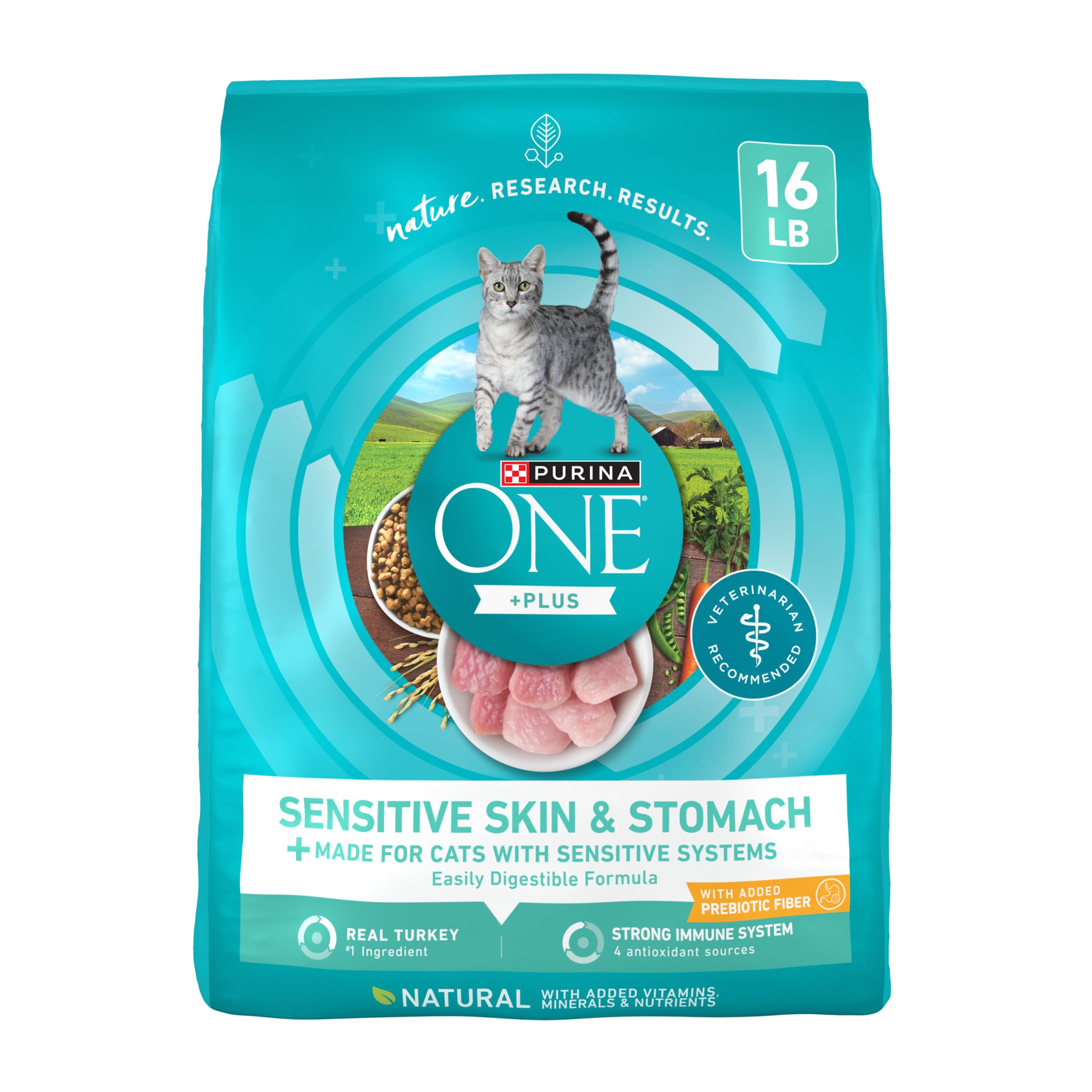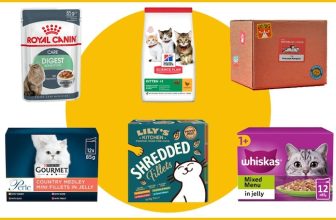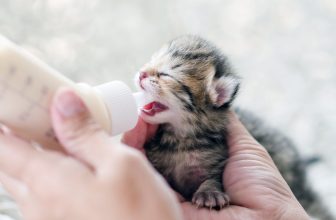Sensitive Stomach Kitten Food: Best Choices for Your Pet

Finding the right food for a kitten with a sensitive stomach can be challenging. A healthy diet is crucial for their growth and well-being.
Kittens often face tummy troubles as they adjust to new foods. Their digestive systems are delicate. Choosing the right food can help prevent issues like vomiting or diarrhoea. It can also support their overall health. This blog post will guide you through the best options for sensitive stomach kitten food.
You will learn about ingredients to look for and what to avoid. Understanding these factors will help you make the best choice for your furry friend. Your kitten deserves the best care, especially when it comes to their diet.
Introduction To Sensitive Stomach In Kittens
A sensitive stomach in kittens can cause many problems. Kittens may show signs like vomiting, diarrhoea, or gas. These signs often mean the food does not agree with them.
Some kittens may eat less or refuse to eat. Others may have a bloated belly or seem uncomfortable. Proper nutrition is important for their growth and health. A kitten’s food must be easy to digest. Special formulas can help soothe their stomachs.
| Sign | Description |
|---|---|
| Vomiting | Throwing up food or liquid. |
| Diarrhea | Runny or loose stools. |
| Refusing Food | Not eating or showing little interest in food. |
| Bloating | A swollen or tight belly. |
Identifying Sensitive Stomach
Many kittens have a sensitive stomach. Signs include vomiting, diarrhoea, and gas. A veterinary diagnosis is important. Your vet will check for allergies or infections. They may suggest tests to find the cause.
Home monitoring helps too. Watch your kitten’s eating habits. Note any changes in their stool. Keep track of how often they vomit. This information helps your vet.
Feed small meals. Choose easily digestible food. Avoid sudden changes in their diet. Stick to one food for a while. Always provide fresh water.
Key Ingredients For Sensitive Stomachs
Probiotics and prebiotics help balance gut health. They support digestion and boost the immune system. Look for foods with added probiotics. These are good for sensitive tummies.
High-quality proteins are important for kittens. They help with growth and energy. Choose foods that list real meat first. Chicken, turkey, and fish are great options.
Easily digestible carbohydrates are key for sensitive stomachs. Avoid heavy grains like corn and wheat. Instead, look for rice or sweet potatoes. These carbs can provide energy without upset.
Types Of Kitten Foods
Choosing between wet and dry food is important. Wet food has more moisture. It helps keep kittens hydrated. Dry food is easy to store. It also helps clean their teeth.
Homemade diets can be good for kittens. They allow you to control ingredients. Use fresh meats and vegetables. Avoid harmful foods like onions and garlic.
Limited-ingredient formulas are great for sensitive stomachs. They have fewer ingredients. This can help avoid allergies. Look for high-quality protein sources.
Top Commercial Foods For Sensitive Stomachs
Finding the right food for your kitten with a sensitive stomach is important. Many brands offer specialised formulas. Look for options made just for kittens. These foods often include easy-to-digest ingredients.
Grain-free options are great for some kittens. These foods do not contain wheat or corn. Instead, they use proteins and vegetables. This can help prevent stomach issues.
Hydrolysed protein diets are also available. They use broken-down proteins. This makes them easier for kittens to digest. Many vets recommend these diets for kittens with allergies.

Credit: www.rumfordpet.com
Transitioning To A New Diet
Start by mixing a little new food with the old food. Use a small amount of the new food. Gradually increase the new food over a week. This helps your kitten adjust. Monitor their stool and energy levels.
Check for any signs of an upset stomach. Look for loose stools or vomiting. If these happen, slow down the transition. Return to a smaller amount of new food. Always keep fresh water available.
Keep an eye on your kitten’s behaviour. Changes may indicate a food issue. Consult your vet if problems continue. They can suggest the best food for sensitive stomachs.
Additional Care Tips
Feed your kitten at the same times every day. A regular feeding schedule helps their stomach feel better. It also builds a routine they can trust.
Keep your kitten’s environment calm. Managing stressors is important for a sensitive stomach. Loud noises and new pets can upset them. Create a quiet space where they feel safe.
Consider giving your kitten supplements and vitamins. These can help with digestion. Always check with a vet before adding anything new.

Credit: shop.hillspet.com
When To Consult Your Vet
Watch for persistent symptoms in your kitten. Signs include vomiting, diarrhoea, or poor appetite. If these last more than a few days, consult your vet.
Dietary adjustments may help. Try a gentle diet. Look for foods made for sensitive stomachs. These foods are easier to digest. They can help reduce stomach issues.
Long-term health management is important. Regular vet visits ensure your kitten stays healthy. Talk about diet options with your vet. This helps find the best food for your kitten’s needs.

Credit: brandclub.com
Frequently Asked Questions
What Is The Best Food For Sensitive Stomach Kittens?
The best food for sensitive stomach kittens includes easily digestible proteins, such as chicken or turkey. Look for high-quality, grain-free formulas with added probiotics. These ingredients help reduce gastrointestinal issues and improve overall digestion, ensuring your kitten receives essential nutrients without upsetting their stomach.
How Do I Know If My Kitten Has A Sensitive Stomach?
Signs of a sensitive stomach in kittens include frequent vomiting, diarrhoea, or excessive gas. You may also notice your kitten eating less or avoiding food altogether. If these symptoms persist, consult your veterinarian for a proper diagnosis and recommendations for suitable food options tailored to your kitten’s needs.
Can I Feed My Kitten Human Food?
Feeding your kitten human food is generally not recommended. Many human foods can be harmful or difficult to digest for kittens. Instead, opt for specially formulated kitten food designed to meet their nutritional needs while being gentle on their stomachs.
Always consult your vet for safe food choices.
How Often Should I Feed A Sensitive Stomach Kitten?
For kittens with sensitive stomachs, feeding them small, frequent meals is ideal. Aim for 3 to 4 meals a day, allowing for better digestion and less gastrointestinal stress. Consistency in feeding times and portion sizes can also help regulate their digestive system and maintain overall health.
Conclusion
Choosing the right food for your sensitive stomach kitten is important. Look for options that are easy to digest. High-quality ingredients help support their health. Always check for allergens in the food. Gradually introduce new food to avoid upset stomachs.
Consult your vet if unsure about any choices. A healthy diet can lead to a happy, playful kitten. Take time to find what works best for your furry friend. Their comfort and well-being matter most. Happy feeding!




